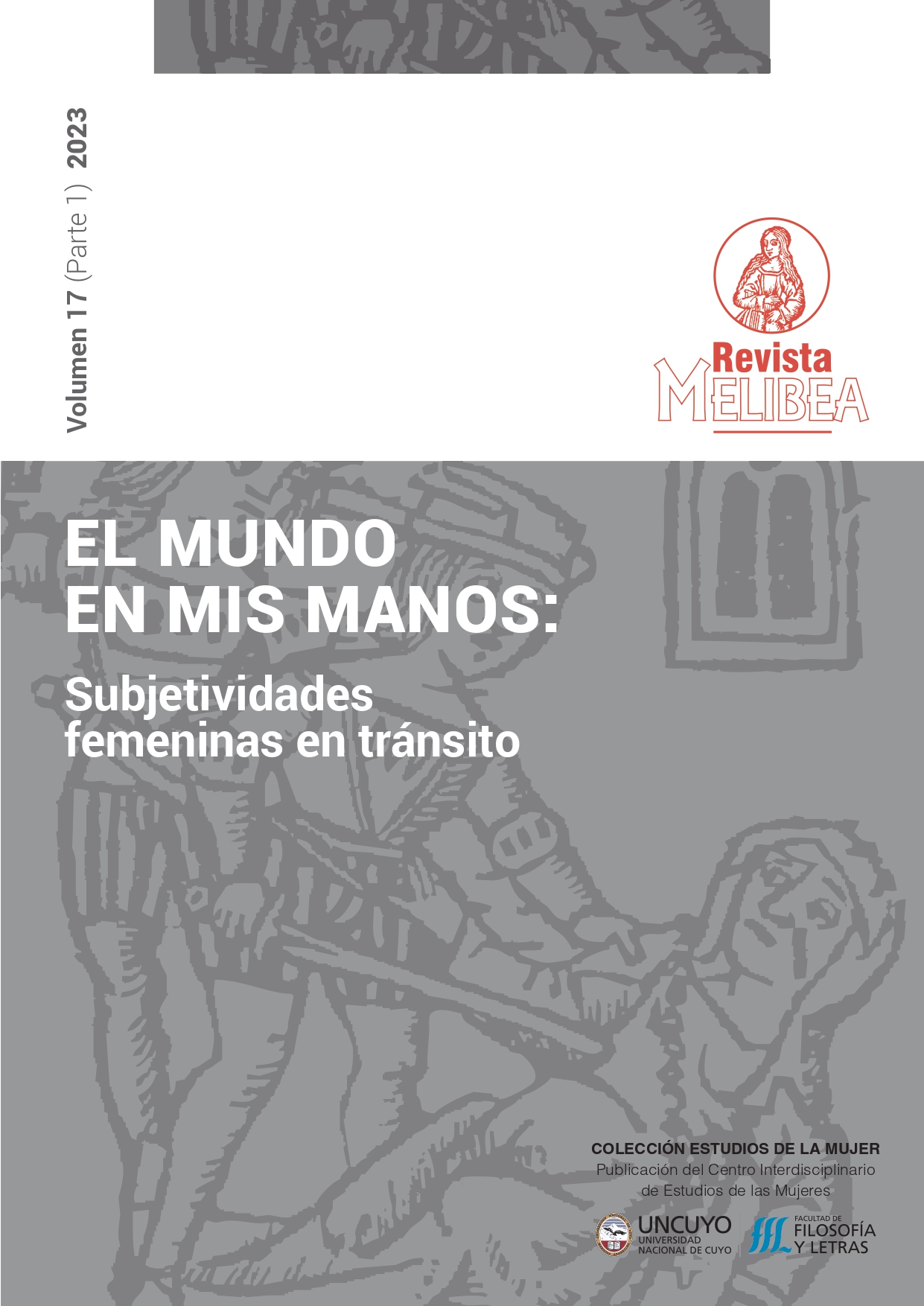Syria Poletti, an inmigrant with a traveler's look
Keywords:
Poletti, Inmigrant, Traveler, (Auto)biography, ArgentinaAbstract
Syria Poletti is an Italian immigrant who arrived in Argentina in 1938, when she was 21 years old. After learning Spanish, she wrote her entire literary production in that new language. Due to this uniqueness, the author did not hesitate to conceive herself as an Argentine writer. In her first novel, Gente conmigo (1962), Poletti fic- tionalized elements of her biography and constructed a particular discourse where, in addition to recovering her experience as an immigrant, she also incorporated her gaze as a “European traveler”, judging by the inclusion of interpretive images about Argentina and the nature of its inhabitants. Based on this hypothesis, the objectives of this work will be: to trace the three perspectives from which the author produces
–as an Italian immigrant, as a “European traveler” and as an Argentine writer–; analyze the trip based on a reconfiguration of her identity and, finally, identify the strategies she deploys to deliver her interpretation of Argentina
References
AGUILAR, Enrique (2016), “La Argentina, interpelada por Ortega y Gasset”, La Nación, 13 de junio. https://www.lanacion.com.ar/opinion/la-argentina-interpelada-por-orte- ga-y-gasset-nid1908316/.
BORDELOIS, Ivonne A. (1963), “Syria Poletti: Gente conmigo. (Losada, Buenos Aires, 1962)”.
Sur, 283, 88-90.
BRAVO HERRERA, Fernanda Elisa (2012), “Syria Poletti y el oficio de escribir exilios”, en GRILLO, Rosa Maria (a cura di), Penelope e le altre / Penélope y las demás, Salerno, Oèdipus, 283-304. https://dialnet.unirioja.es/servlet/articulo?codigo=4236602.
BRAVO HERRERA, Fernanda Elisa (2016), “Espacios autobiográficos y de la Memoria en Syria Poletti”, Gram- ma, XXVII, 56, 121-135.
BURET, María Florencia (2021a), “Leyes y encierro: lo absurdo y la rebelión en Gente conmigo de Syria Poletti”, Congreso Virtual Internacional “Discursos cautivos. Mujer, escritura y reclusión”, Universitat de València, 8 y 9 de abril de 2021. https://www.youtube.com/ watch?v=p2JST8qyIpA.
BURET, María Florencia (2021b), “La mordedura de lo real en Gente conmigo de Syria Poletti”, Re- cial, Córdoba (en prensa).
BERRY, John W. (2001), “A psychology of immigration”, Journal of Social Issues, 57.3, 615-31.
CEMLA, “Centro de Estudios Migratorios Latinoamericanos”. https://cemla.com/
CORNEJO POLAR, Antonio (2003), Escribir en el aire. Ensayo sobre la heterogeneidad socio-cul- tural en las literaturas andinas, Lima, Latinoamericana Editores.
GARCÍA CANCLINI, Néstor (1997), “Culturas híbridas y estrategias comunicacionales”, Estudios
sobre las Culturas Contemporáneas, 3.5, 109-128.
MEDRANO, Carmen (1992), “Entonces La mujer. Syria Poletti”, Todo es historia, 34-36. Año XXVI.
ORTEGA y GASSET, José (1963), “La Pampa... promesas”, Obras completas. Tomo II. El Espec- tador (1916-1934), 635-642, Madrid, Revista de Occidente.
ORTEGA y GASSET, José (1965), “Impresiones de un viajero [1916]”, Obras completas. Tomo VIII,
-371, Madrid, Revista de Occidente.
POLETTI, Syria (1967), Gente conmigo, Buenos Aires, Losada.
POLETTI, Syria (1977), “Reportajes periodísticos a Syria Poletti”, Taller de imaginería, 143- 171, Buenos Aires, Losada.
SERAFIN, Silvana (2018), “Syria Poletti en su laberíntico deambular entre realidad y ficción”, Hispanic Studies Review, 3.2, 136-149. https://hispanicstudiesreview.cofc.edu/is- sues/vol3_no2_2018/12-hsr-vol-3-no-2-2018-serafin.pdf.
Downloads
Published
How to Cite
Issue
Section
License
Copyright (c) 2023 María Florencia Buret

This work is licensed under a Creative Commons Attribution-NonCommercial 4.0 International License.
Esta obra está bajo una Licencia Creative Commons Atribución-NoComercial 4.0 Internacional.
Los/as autores/as que publican en esta revista están de acuerdo con los siguientes términos:
1. Los/as autores conservan los derechos de autor y garantizan a la revista el derecho de ser la primera publicaci´´ón del trabajo bajo una licencia Creative Commons Atribución-NoComercial 4.0 Internacional. Por esto pueden compartir el trabajo con la referencia explícita de la publicación original en esta revista.
2. Revista Melibea permite y anima a los autores a difundir la publicación realizada electrónicamente, a través de su enlace y/o de la versión postprint del archivo descargado de forma independiente.








